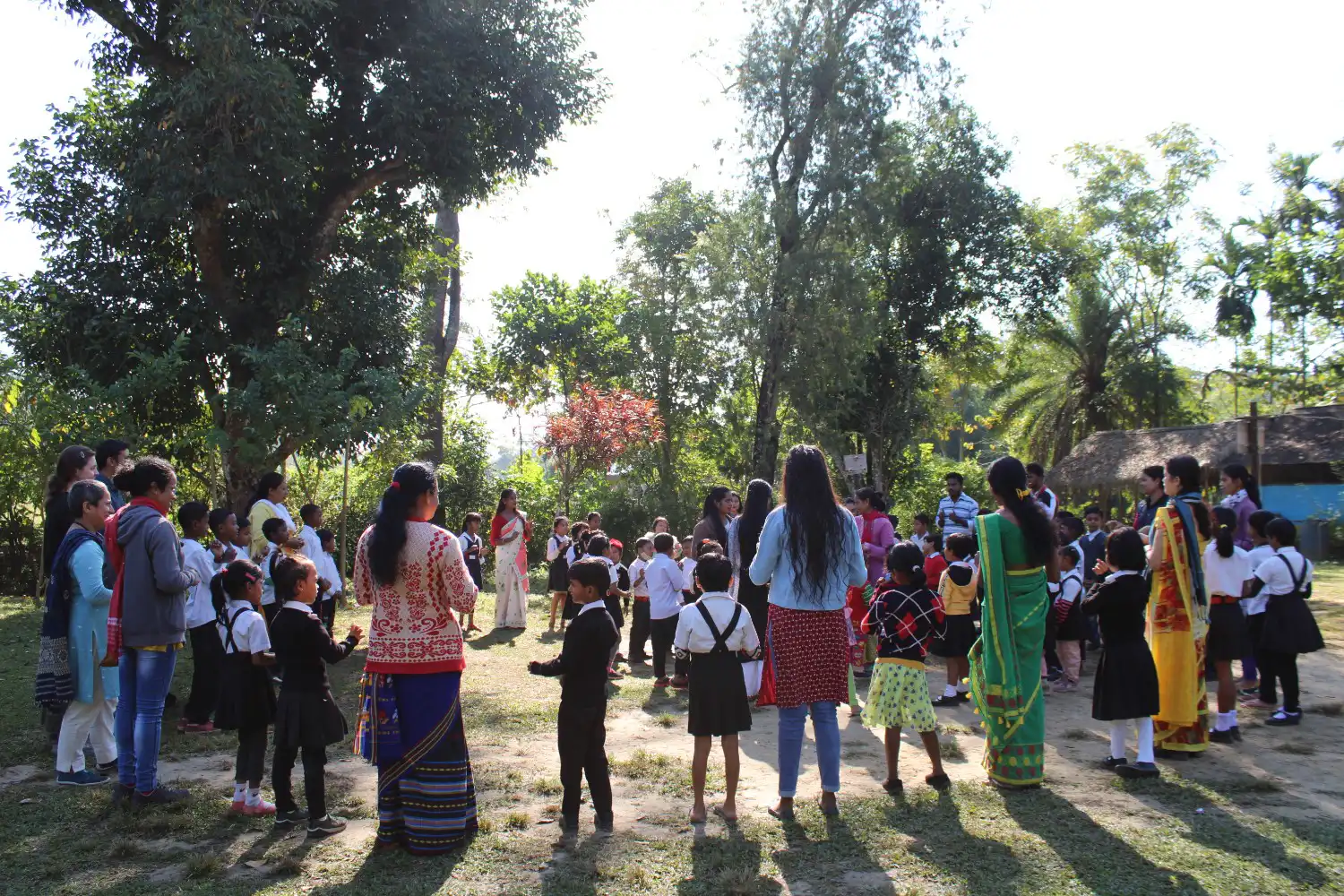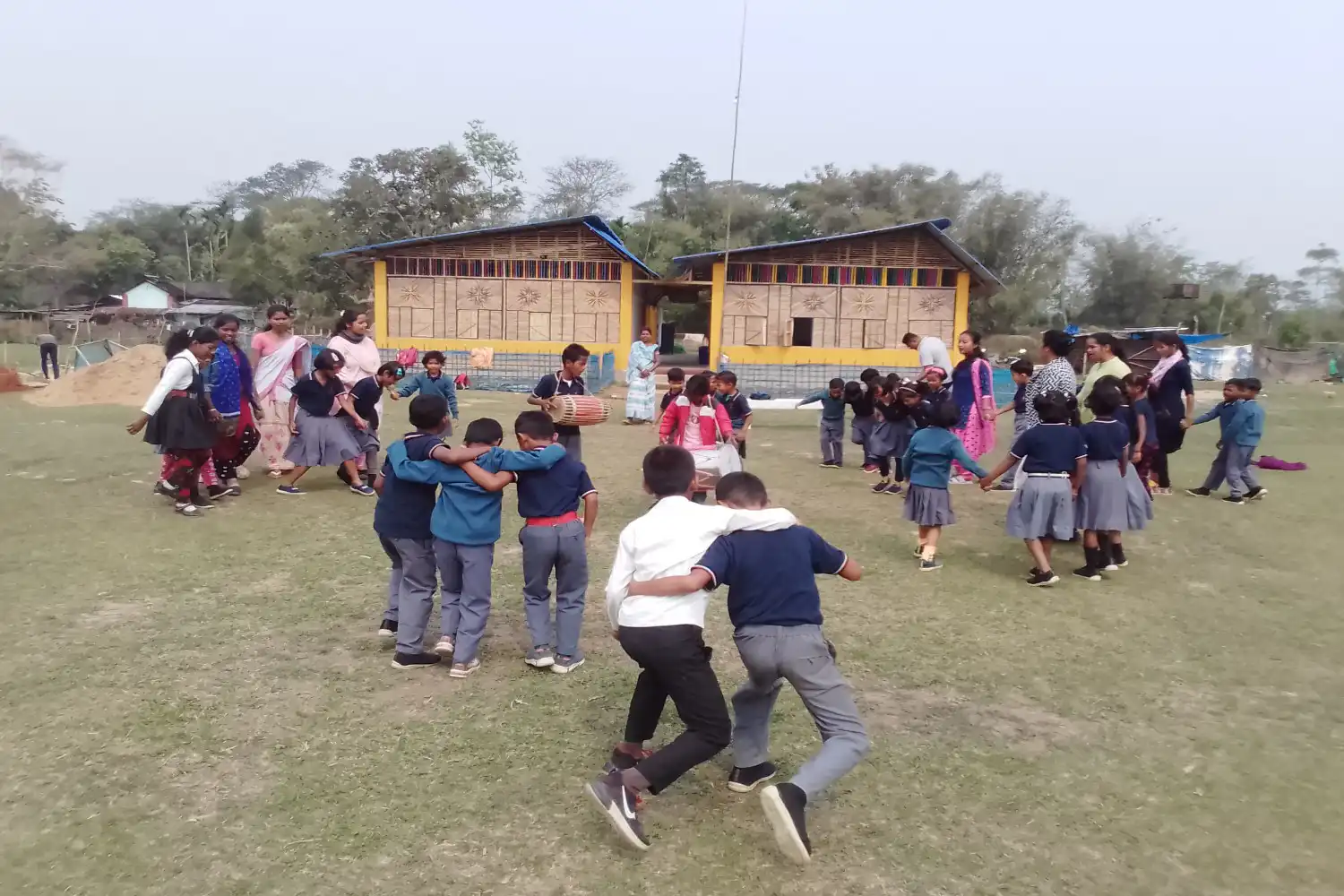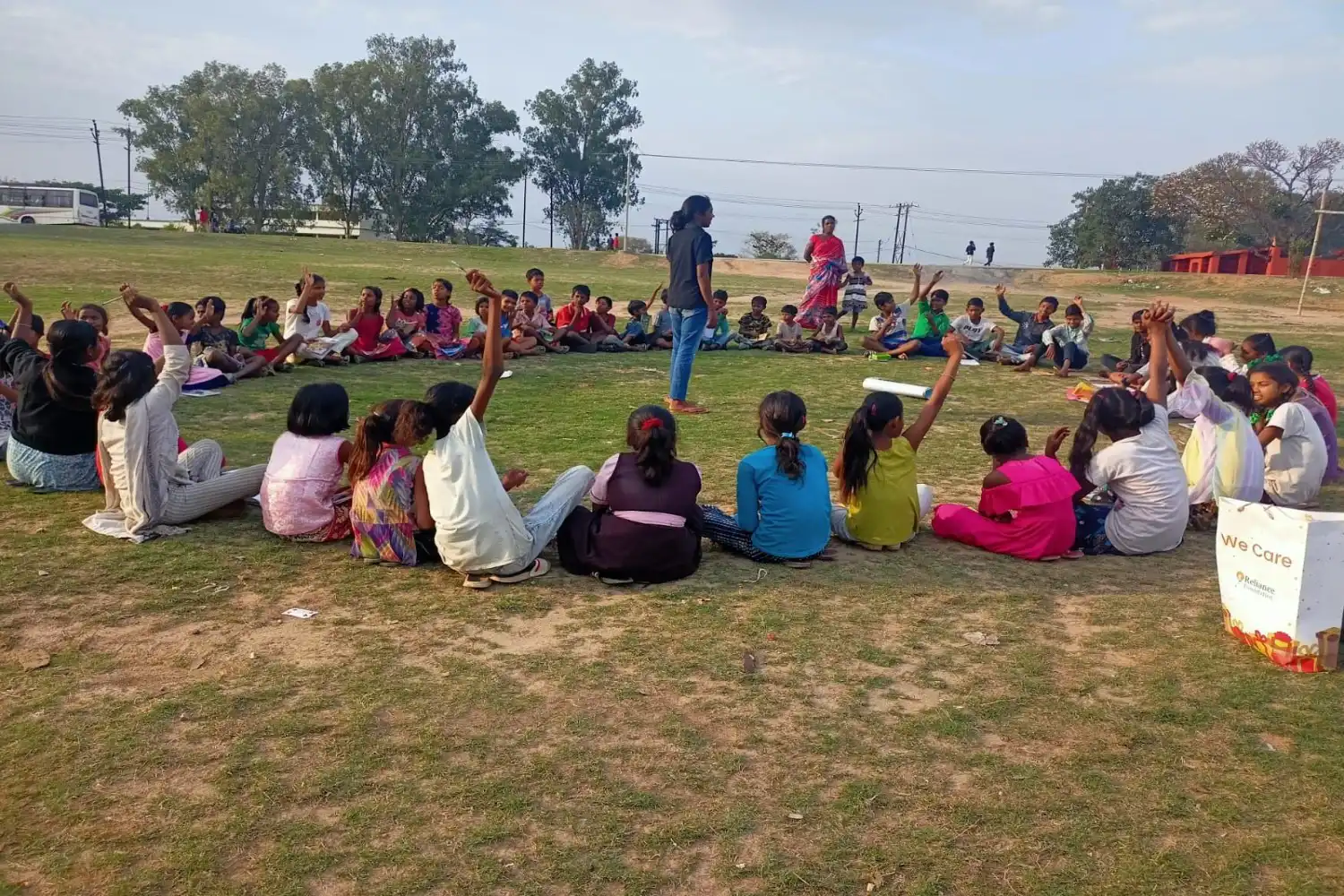Does learning happen only in classrooms?
This issue of Samuhik Pahal seeks to answer the question, how can the totality of the experience of schooling, and not just learning in classrooms, be used to help students become sensitive, responsible and engaged human beings and learners.

When we think about schools, we still mostly equate them with classrooms. Our interventions in learning in schools often tends to get limited to attempts at improving pedagogic practices in the classroom and the curricular frameworks necessary for facilitating such work.
What if we start thinking about the school as an institution beyond the classroom? If we do that, it may open up both new avenues of engagement with the school as an institution, and with students, teachers and staff as stakeholders. It can also deepen our understanding of processes related to learning, and has the potential to help us begin a journey of reengaging with classrooms with refreshed sensibilities.
There are many such spaces in schools, be they physical, social or temporal. Some already exist as learning spaces, but their potential may not be fully utilized. Some others will need focused effort for them to start working for this purpose.
A good example of the former are libraries. Although a large number of schools, especially in the government school system, function without libraries, many schools do have a library.
However, even schools with libraries are often happy with having a weekly library period and herding children into the space for some unsupervised break time. Libraries have the potential to radically transform children’s engagement with learning processes.
The process of library work involving the curation of books, the development of a collection, and engaging with children with read alouds, etc. can also help teachers and library staff hone their skills and build capacities.
Similarly, the way we relate to our bodies and nourish them constitute an important aspect of education. It is high time the training of the body is seen as being as important as training the mind.
The playground, sports, and physical culture in general, are much neglected areas of learning. These have been marginalized because of our disproportionate focus on the classroom.
The playground is also a site for children’s socialization. Thus, it can become an important space for social and emotional learning as well. However, it needs to be thoughtfully utilized for this purpose. Reorienting our interventions in schools in a way that see the playground as a vital site of learning will be an important step in this direction.
The school assembly is similarly utilized in a suboptimal fashion as a tool for passing on messages and notices. As a space, it can be used to develop a culture of learning and inclusion by encouraging students to speak and participate, especially those that come from marginalized communities.
Tools such as circle time can be introduced to revitalize the school assembly as a space. However, circle time can be used in a much broader way to facilitate social emotional learning and in developing an inclusive, learner-centered school culture as well. Alternative schools across the country have demonstrated the importance of kitchens and kitchen gardens as spaces where children can develop significant life skills, from cooking and team work to developing healthy relationships with nature and one’s own body.
Learning how to grow and cook one’s own food can also have multiple other benefits, such as lower levels of stress, and a greater confidence in one’s own abilities. Doing this in government schools, especially, might be a challenge that is worth exploring.
Kitchen gardens are one way in which children in schools can develop a relationship with nature. The school garden similarly is a site for nature learning that is not often adequately explored.
Nature walks within and around schools, and closely observing how plants and trees in school gardens respond to seasonal change, recording these and learning from this process, is one set of methods that some schools and organizations are following to great effect. The work of ‘Nature Classrooms’ in this space has been exemplary.
Teachers’ commons rooms, PTMs, and other such spaces and meetings in schools, where adults gather for various process can also be used for capacity building and developing democratic school cultures.
It is also possible to use events that take place (or can potentially happen) in schools for learning related interventions. These include annual literature festivals, annual functions, FLN melas and science fairs, etc.
These events can be used to help promote experimental science, develop children’s familiarity with theatre practice, and help them joyfully pick up the skills of literacy and numeracy.
While working in these spaces, it might be worthwhile to explore and try and restore a sense of joy and agency to both students and teachers.




No approved comments yet. Be the first to comment!